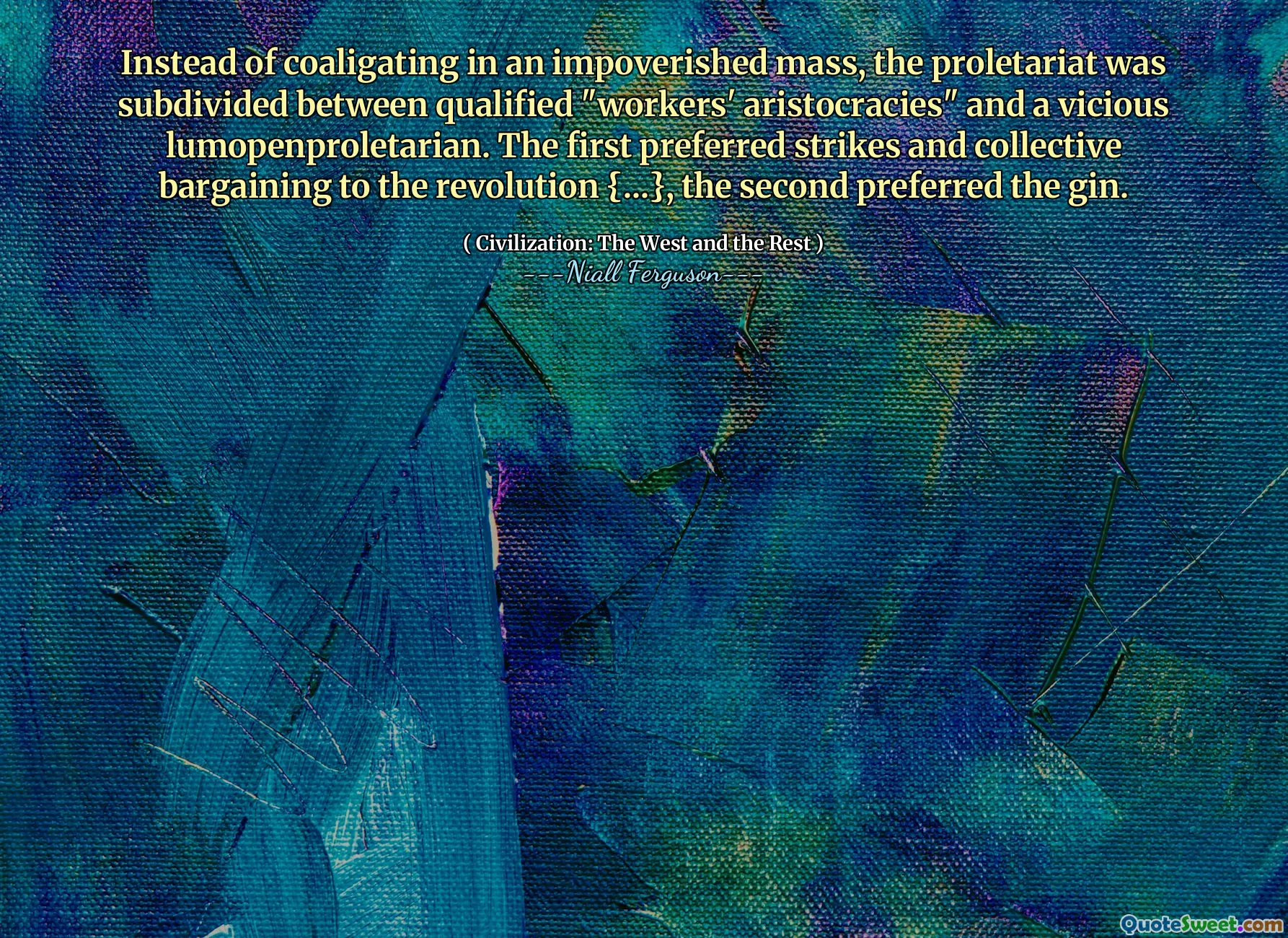
Instead of coaligating in an impoverished mass, the proletariat was subdivided between qualified "workers' aristocracies" and a vicious lumopenproletarian. The first preferred strikes and collective bargaining to the revolution {...}, the second preferred the gin.
In "Civilization: The West and the Rest," Niall Ferguson discusses the division within the proletariat, highlighting how the working class is not a monolithic group. Instead of uniting in their struggles, they are split into two distinct factions: the skilled workers, referred to as "workers' aristocracies," who lean towards negotiating through strikes and collective bargaining, and a marginalized group known as the lumpenproletariat, which is characterized by their struggle and reliance on vices such as alcohol.
This division suggests that the working class's interests and actions vary significantly, undermining the potential for a unified revolutionary movement. Ferguson points out that the "workers' aristocracies" are more inclined to seek improvements within the system rather than pursue radical change, while the lumpenproletariat reflects the desperation of those on the fringes of society. This disparity complicates the social dynamics and challenges the idea of a cohesive proletarian uprising.











